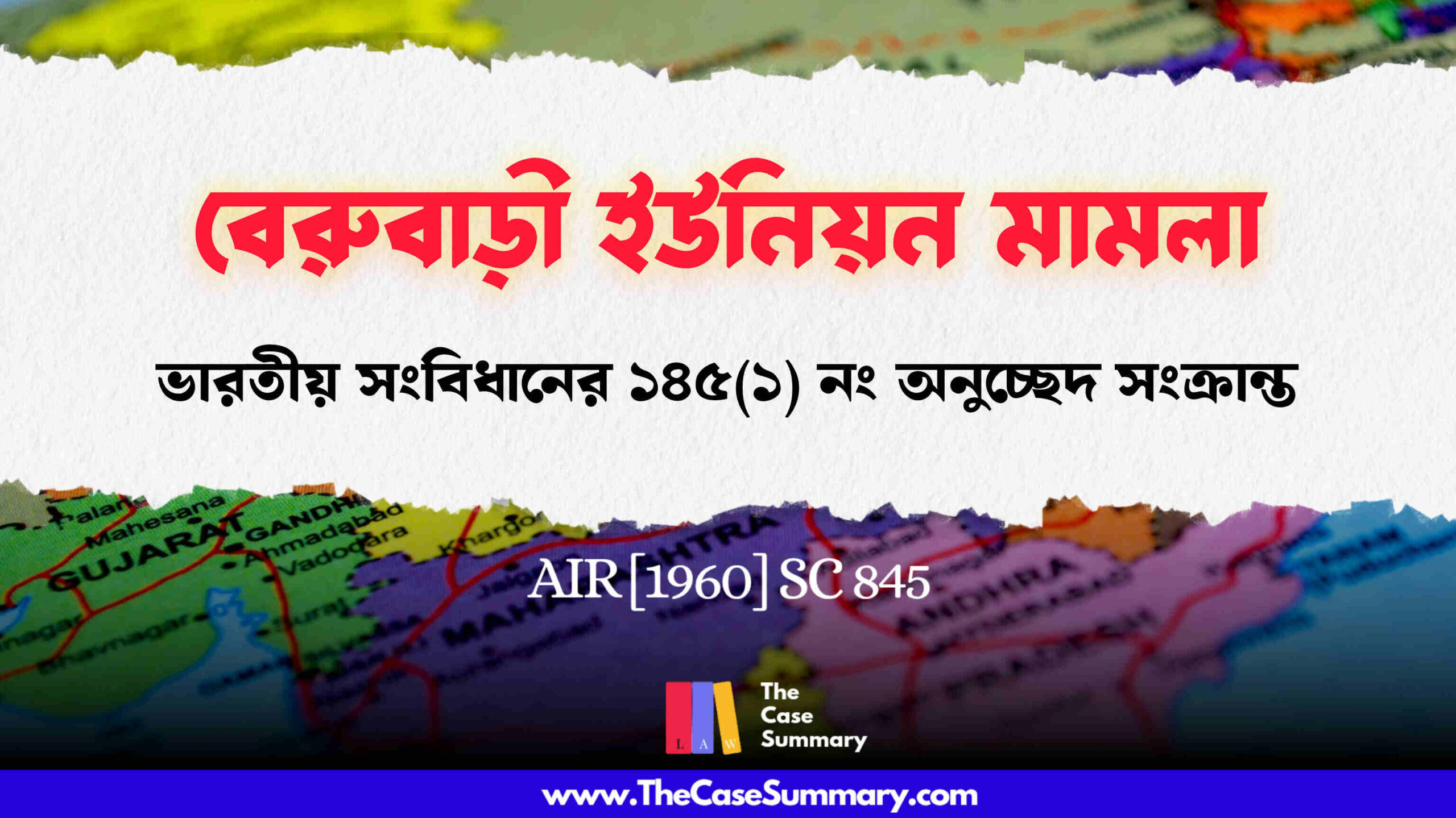Bangladesh vs Professor Golam Azam and others
Citation : 46 DLR (AD) 192 (1994)
Jurisdiction : Bangladesh
Appellant : The Government of People’s Republic of Bangladesh
Respondent : Professor Golam Azam
Facts :
Professor Golam Azam, the respondent, was the Amir of Jamaat-e-Islami of East Pakistan in 1969 to 1971. Prior to the liberation of Bangladesh, he moved to Pakistan on November 22, 1971. The Government of Bangladesh cancelled the citizenship of 38 “Rajakars” including the respondent on April 28, 1973 under Article 3 of the Bangladesh Citizenship (Temporary Provisions) Order, 1972 with no prior notice.
On January 17, 1976, the government invited applications from individuals whose citizenship had been canceled for its restoration and the respondent applied from London, which was rejected then. Subsequently, he applied in 1977 and 1978 and entered Bangladesh with a Pakistani Passport with a visa granted on humanitarian grounds to visit his ailing mother in 1978. He overstayed his valid visa duration and was arrested on march 24, 1992 under the Foreigner’s Act, 1946.
The respondent filed a writ petition in the High Court Division for the restoration of his citizenship which was ruled in his favor and the government appealed the decision.
Issues :
1. Whether residing abroad creates a reasonable suspicion about someone’s citizenship under Article 3 of the Bangladesh Citizenship Order, 1972?
2. Whether the Notification cancelling citizenship violated principles of Natural Justice?
Arguments :
Professor Golam Azam argued that he and his ancestors were born in Bangladesh and he was a permanent resident as of March 25, 1971 and his staying in Pakistan was for the purpose of his party work and was prevented to enter Bangladesh later. After his return to Bangladesh with a Pakistani passport, he surrendered it and applied for the restoration of his citizenship.
The government argued that Azam’s prolonged stay in Pakistan suggested that he abandoned his permanent residence in Bangladesh as it was not for study or employment purpose. Moreover, they argued that the citizenship cancellation notification did not deprive the respondent of any vested rights and thus, prior notice was unnecessary.
Decisions :
The Appellate Division dismissed the governments appeal holding that the notification was neither fair nor reasonable. Moreover, the court found substantial evidence of the respondent’s intention to return to Bangladesh (animo revertendi). It also stated, residing abroad for valid reasons does not negate one’s permanent residence under Article 2 of the order. The court also emphasized that a passport is not conclusive evidence of its holder’s citizenship and the cancellation issued without prior notice violated the principle of audi alteram partem (the right to be heard).
The court underscored that the citizenship is not explicitly listed as a fundamental right in the constitution, though it underpins all other rights. It further noted that even individuals with pro-Pakistani sentiments born in Bangladesh are entitled to citizenship if they meet the criteria outlined in Article 2 of the order and are not disqualified under 2B(1) of the Bangladesh Citizenship (Temporary Provisions) Order, 1972.
Relevant Laws :
- The Bangladesh Citizenship (Temporary Provisions) Order, 1972
- Article : 2, 3
- The Foreigner’s Act, 1946
- The Constitution of People’s Republic of Bangladesh
Author :
1. Muhammad Ishrak Ahsan Khan
Note : The Case Summary is a platform by the law students, for the law students. We aim to summarize the facts and decisions of various important cases in both Bangla and English with utmost caution. However, this platform is in no way a replacement for going through the complete judgements by the law students and we discourage any learner from relying on case summaries alone. Thank you



